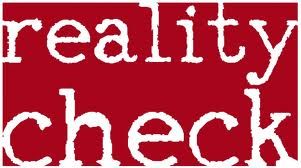Career
How to Know If You’ll Ever Accomplish That Goal
Why some of us succeed and others fail
Posted January 5, 2013
I counsel people who want to lose weight; many have big goals: 50 lbs, 75 lbs, 100 lbs. The reality is not many people lose this kind of weight and among those who do, many will gain it back. However, some people will achieve the goal and remain successful. Who are these people? What are they doing that the others aren't? Weight loss is just one example, but this applies to any major life goal whether it be career, relationships, or learning a skill. How do you become the person who is able to change his life-- for good?
The problem we have when we set a goal is that we focus entirely on the specific actions that will achieve the goal and little else. Take the person with the 100 pound weight loss goal. They put intense focus on changing their diet and exercise, because these are the steps that are directly related to reducing one’s weight. This makes perfect sense, right? Of course you focus on the steps that lead to the outcome. Unfortunately, if you are doing this and only this you will not likely achieve your goal.
I am not suggesting the steps are the wrong steps or that you shouldn't focus on the steps at all. There is another point of focus that is just as important as the steps. You need to focus on becoming the person who has lost weight.
What does this mean?

Consider this. You are at a coffee shop and meet a concert pianist. How do you know he is a concert pianist? Likely because he said so when you asked his occupation, or he mentioned heading to the concert hall after coffee. One day he invites you over. You notice he has a grand piano in the living room and a smaller one in a spare bedroom. You see autographed pictures of musicians hanging on the wall, some of whom he says he has met and have inspired him. He also has some antique instruments as decor. You hear classical music playing. Then, a few of his friends show up, many of whom are also musicians. You would know you were in the home of a concert pianist even if you had not met him previously. His love for music is apparent in his surroundings.
People who truly achieve a goal transform their lives such that it becomes a part of their identity. For the concert pianist, the goal of playing good piano means more than taking lessons and practice. His life has become music. Music is how he spends a lot of his time, even his house and his belongings exude music, a large part of his identity has become music.
Achieving any goal requires the same transformation. People who successfully achieve their goal actually become their goal. He wanted to learn to play piano well, now he is a concert pianist. If you want to lose 50 pounds, you must become a healthy living person.
You might currently be following the steps toward a goal (e.g., weight loss, new career, etc) but finding that you aren't really becoming the goal, or that it feels like drudgery. Surely the pianist would tell us it felt like drudgery at times, so that is not necessarily a bad sign. However, becoming your goal requires three things.
You Value The Journey As Much or More Than the Goal

You Value The Journey As Much or More Than the Goal
You Understand the Magnitude of the Work.

You Understand the Magnitude of the Work.
Let It Take Over Your Life

Let It Take Over Your Life
At first the process of entering the goal into all aspects of your life may be difficult because you experience resistance from others, don't have friends who share the goal, or you feel like you don't have the funds or time. All of these are solvable problems. Figure out what the stumbling blocks are and devise some workarounds. The unsolvable problem is not truly understanding and valuing the journey. If it becomes clear that you don't, then consider letting go of your goal. To abandon a goal that is not in your heart is not failure; it’s the smartest thing you can do because it will free you up to put your energies toward something that is in your heart. Failure is persisting at something half-heartedly and as a result never achieving much.
Change isn’t solely about following rules, steps, and recipes. Change is about understanding what it means to be the person who has done it, wanting to be that person more than anything, and embracing the journey even more so than the destination.




